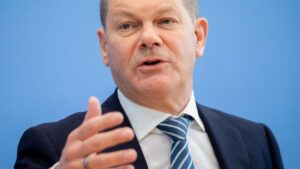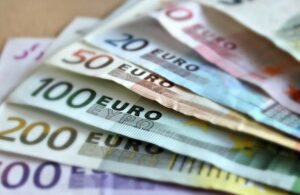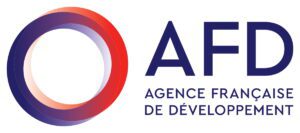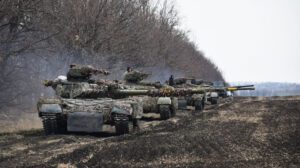
The state-owned enterprise NNEGC Energoatom has raised a UAH 1.5 billion loan from Ukreximbank (Kyiv) to purchase fresh nuclear fuel from Westinghouse in 2022.
“The borrowed funds will make it possible to increase the purchase of American fuel and ensure the efficient operation of power units of Ukrainian nuclear power plants after the rejection of Russian nuclear fuel,” the NAEC said in a statement.
As reported, Energoatom, at the beginning of a full-scale Russian military aggression, announced a complete refusal to purchase Russian-made nuclear fuel.
Energoatom is the operator of all four operating nuclear power plants in Ukraine. Operates Zaporozhye, South-Ukrainian, Rivne and Khmelnytsky stations with 15 power units equipped with water-cooled power reactors, with a total installed electric capacity of 13.8 GW.

Deputy Prime Minister and Minister of Finance of Canada Christia Freeland at a meeting of G7 finance ministers and central bankers in Germany on May 20 announced an additional loan of CAD250 million ($ 195 million) to Ukraine through an account managed by the International Monetary Fund (IMF) Of Ukraine.
“We will continue to work to hold Putin and his henchmen accountable for their illicit war and to ensure that Ukraine has the resources it needs to win. This new loan is an important contribution to these important efforts,” the statement said. website of the Government of Canada word Freeland.
According to him, together with previous financial support, this loan brings Canada’s financial obligations to Ukraine to CAD1.87 billion this year. This funding is provided separately and in addition to substantial military assistance, humanitarian assistance and immigration efforts, the release said.
Canada has previously pledged up to CAD1 billion for an IMF-managed account for Ukraine in the 2022 budget in addition to CAD 620 million in bilateral loans earlier this year.
Since February 2022, Canada has also provided military assistance to Ukraine in the amount of more than CAD620 million.

Germany, which recently provided Ukraine with a EUR150 million loan, is rapidly preparing another such loan, German Chancellor Olaf Scholz said at the High-Level International Donor Conference for Ukraine in Warsaw on Thursday.
“We will provide much-needed liquidity to the budget of Ukraine. Recently, a special loan of EUR150 million was allocated. Another loan of EUR150 million is being prepared on an accelerated basis,” he said.
Scholz added that, as part of bilateral development cooperation, Germany had already provided EUR122 million to Ukraine to address the economic and social consequences of the war. “And we intend to provide another EUR140 million for development financing,” the chancellor said.

The Cabinet of Ministers has approved a draft loan agreement for EUR 150 million between the government of Ukraine and the KfW bank (Frankfurt am Main) to support entrepreneurship.
According to Taras Melnichuk, representative of the Cabinet of Ministers in the Verkhovna Rada, the government made the corresponding decision at a meeting on Tuesday.

The Cabinet of Ministers of Ukraine has approved a loan from the French Development Agency for a total amount of up to EUR 300 million in 2022.
“State external borrowing in 2022 is carried out by raising a loan from the French Development Agency for a total amount that does not exceed EUR 300 million and is provided in accordance with a loan agreement between Ukraine represented by the Finance Minister as a borrower and the French Development Agency as a creditor, within provided for by the law on the 2022 national budget of Ukraine,” the government said in resolution No. 358 dated March 24.
According to the terms, the loan amount bears interest at a fixed annual interest rate of 1.04%, which is paid every six months.
The final repayment of the loan is carried out after 15 years from the date of conclusion of the loan agreement (taking into account the grace period for deferring loan repayment for a period of five years from the date of conclusion of the loan agreement).

Ukraine’s spending on the development and procurement of weapons and military hardware in 2022 has been increased by UAH 67.57 billion with UK loans totaling 1.7 billion and aimed at bolstering capacities of the Ukrainian Navy.
The Ukrainian Verkhovna Rada adopted the respective bill by 342 votes on Tuesday.
The bill enlarges this year’s budget expenditures from UAH 1,525.930 trillion to UAH 1,593.5 trillion with the special fund’s growth to UAH 221.11 billion.
Meanwhile, the budget deficit ceiling was raised from UAH 188.8 billion to UAH 256.36 billion, including UAH 96.1 billion for the special fund.
In addition, the budget no longer has restrictions at the amount of 3% of the planned revenue for the provision of state guarantees, as well as restrictions at the amount of UAH 10 billion and UAH 20 billion, respectively, for the provision of portfolio guarantees and loan guarantees, in order to increase the national defense capacity.
The bill limits road fund expenditures. “The money will be primarily spent on repaying the state debt, defense, and the development and maintenance of roads,” the Servant of the People faction said in comment on the bill.
An explanatory note says that Ukraine will be implementing state investment projects to purchase two minesweepers from British suppliers, to deliver and service these minesweepers, to ensure the joint construction of eight missile craft, and to deliver and install weapons on the available ships. It is also planned to jointly build a frigate and to receive advisory and technical support for the construction of naval infrastructure, including the delivery of equipment.
At the end of January, the Verkhovna Rada ratified a framework intergovernmental agreement on loan funding of the development of the Ukrainian Navy. The agreement was signed in London on November 12, 2021, to envisage allocations for the construction of eight missile craft, the procurement of two minesweepers from the UK, and the opening of two naval bases in Ukraine.